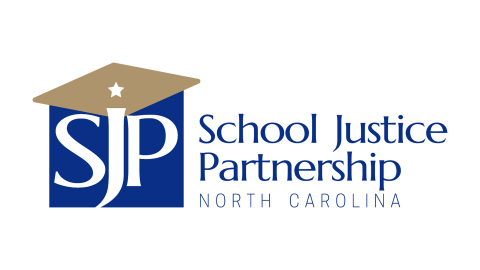Pitt County Schools, Law Enforcement, and Courts Start New Program to Keep Kids in School and Out of Court
Article contents

Pitt County Chief District Court Judge G. Galen Braddy convened local court, school, law enforcement, juvenile justice and county officials today for a ceremonial signing of the School Justice Partnership Memorandum of Understanding (MOU). The parties to the MOU are opening a forum to discuss and consider best practices that may help reduce school-based referrals of youth to the court for minor misconduct that does not pose a threat to the safety and welfare of others.
“We are very pleased here in North Carolina that we raised the age at which young people can be charged in criminal court as an adult,” said Supreme Court of North Carolina Chief Justice Cheri Beasley. “We know that we can further increase the likelihood of success for these young people by reducing the number of referrals into our criminal justice system and are excited about empowering local leaders working together collaboratively and giving our young people improved opportunities for success.”
Community leaders in attendance at the signing ceremony included:
- Chief Justice Cheri Beasley, Supreme Court of North Carolina
- Chief District Court Judge G. Galen Braddy
- Senior Resident Superior Court Judge Marvin K. Blount III
- Clerk of Superior Court Sara Beth Fuller Rhodes
- District Attorney Faris Dixon
- Public Defender Robert Carl Kemp III
- Chief Court Counselor Stacy Huss, District 3
- Chairman Beth Ward, Pitt County Board of Commissioners
- Anna Barrett Smith, chair, Pitt County Board of Education
- Superintendent Dr. Ethan Lenker, Pitt County Schools
- Sheriff Paula Dance, Pitt County
- Chief of Police Mark Holtzman, City of Greenville
- Chief of Police Ryan Willhite, Town of Winterville
- Chief of Police Donnie Greene, Town of Farmville
- District Administrator Jessica Honeycutt, Guardian ad Litem
- Deanna Spruill, coordinator, Pitt Teen Court
“It is an honor to have Chief Justice Beasley here in Pitt County to commemorate the signing of this partnership,” said Chief District Court Judge G. Galen Braddy. “Our community stakeholders have recognized the importance of coming together to attempt to keep our youth in school and out of court when possible.”
In North Carolina, school-based referrals make up about 40% of the referrals to the juvenile justice system. Most of these referrals are for minor, nonviolent transgressions. In the 2016-2017 school year, only 8% of school-based referrals were for serious offenses.
Suspension and expulsion increase the risk that students will drop out of school, repeat a grade or engage in future delinquent conduct. A single suspension triples the likelihood that a child will enter the juvenile justice system, which itself increases the likelihood of negative outcomes, especially as involvement in the system deepens. Confinement in a juvenile facility, for example, increases the risk that a youth will be rearrested as an adult. For some children, a school-based referral can lead to a permanent criminal record that creates barriers to college financial aid, employment, housing and military eligibility.
Chief district court judges across North Carolina are working with community stakeholders to implement School Justice Partnerships in all 100 counties as a result of the state’s Raise the Age law, which will increase the maximum age of juvenile court jurisdiction from 16 to 18. The legislation, which will become effective December 1, 2019, authorizes the development of SJPs in each county with a goal of reducing in-school arrests, suspensions and expulsions. SJPs have been established in Beaufort, Brunswick, Columbus County-Whiteville City Schools, Greene, Hyde, Lenoir, Martin, Mecklenburg, New Hanover, Stanly, Tyrrell, Washington and Wayne counties. Additional counties or judicial districts are currently developing School Justice Partnerships.
MORE INFORMATION
The School Justice Partnership is a group of community stakeholders who work together to establish specific guidelines for school discipline in a way that minimizes suspensions, expulsions and school-based referrals to court for minor student misconduct.
Currently, many students are suspended, expelled and referred to court for minor misconduct which produces harmful outcomes for youth and their communities. Students who are suspended and expelled are more likely to repeat a grade, drop out of school and engage in higher levels of disruptive behavior. A single suspension also triples the likelihood that a student will enter the juvenile justice system. These negative outcomes disproportionately impact certain students, including youth of color and students with disabilities, who are more likely to be suspended, expelled and referred to court than their peers.
SJPs across the nation have produced better outcomes for students. Judge Steven Teske’s program in Clayton County, Georgia, known as the “Clayton County School Referral Reduction Protocol,” resulted in a 67.4% decrease in referrals to juvenile court, a 43% decrease in referrals of youth of color to juvenile court, and a 24% increase in graduation rates. Similar programs in Texas and Connecticut also have experienced positive results.